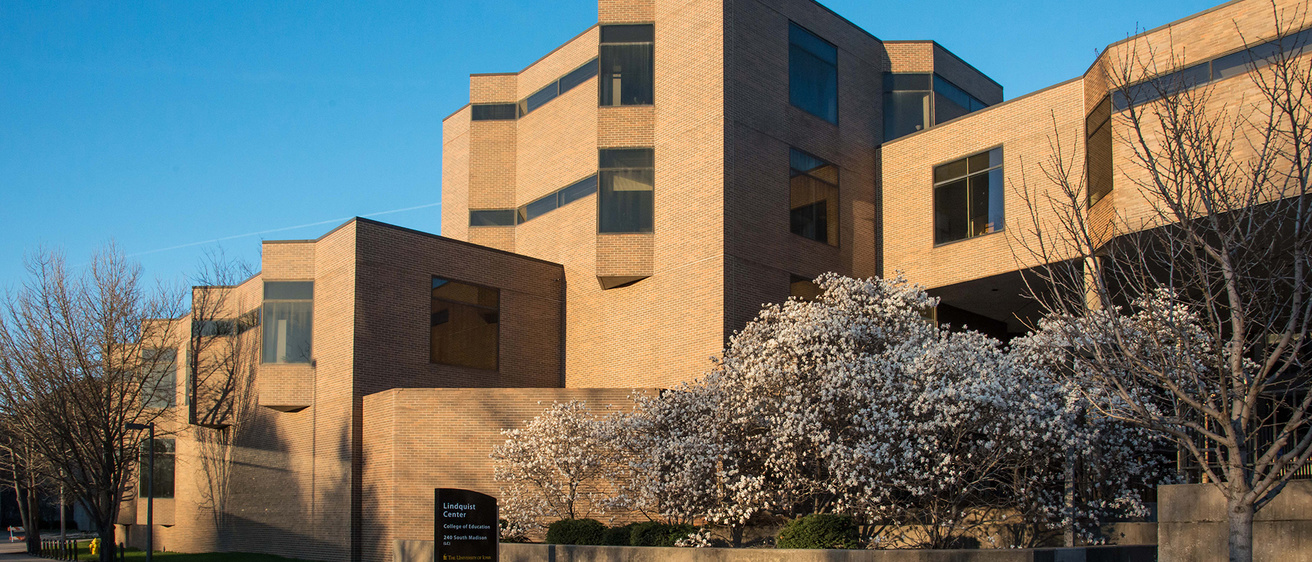By: Claire Quigle
The following University of Iowa College of Education faculty received funding from the UI Obermann Center for Advanced Studies to host special virtual guest speakers in their classes during the spring 2021 semester. The UI Obermann Center for Advanced Studies created the Invite-a-Guest-to-Class mini-grants this year due to the COVID-19 pandemic and distance learning.
Mary Cohen, associate professor of music education
As an associate professor of music education, Cohen teaches music education students on their way to becoming certified music teachers, graduate students in music education, and other students who take her peacebuilding, singing, and writing in a prison choir class.
Cohen was awarded Obermann Center funding to virtually bring a guest speaker into her class. She chose Fury Young, founder of die Jim Crow records. Die Jim Crow Records is the first record label in the United States for formerly and currently incarcerated musicians. Its mission is to provide artists with a high-quality platform for their voices to be heard. These records are an example of peacebuilding.
“This artist is based in New York so there is no way he would be able to join the class in person,” Cohen says. “He is bringing one or two of his artists from the album project on as well. Having this direct connection with people who have been impacted by the harmful US prison practices is vital to the students learning.”
Pamela Wesley, associate professor of multilingual education
As an associate professor of multilingual education, Wesley teaches the course Research Methods in Literacy, Culture, and Language Education.
Wesley received Obermann Center funding to virtually bring a guest in to visit her class. She chose to invite Leigh Patel, who works as a professor of educational foundations, organizations, and policy at the University of Pittsburgh. She is the author of the book: “Decolonizing Educational Research: From Ownership to Answerability” (2015). This book offers a vital, critical perspective on the purposes, procedures, goals, and outcomes of how we currently conduct educational research.
“Her book is really complex and grounded in ideas that are from an intellectual and academic tradition that is newer to me,” Wesley says. “She looks at things through the lens of critical race theory and decolonization. Having her come to speak is instructive for me, too! It is just amazing to have her with us to answer questions.”
Maia Sheppard, assistant professor and coordinator, social studies education
As an assistant professor and coordinator of social studies education, Sheppard teaches courses in the social studies teacher education and graduate programs.
Sheppard was awarded Obermann Center funding to virtually bring a guest speaker into the classroom. She chose to invite Hanadi Shatara, assistant professor of history and social studies education from the University of Wisconsin, La Crosse to speak to her Theories and Perspective in Global Education course. This is a course for master of arts and doctoral students interested in social studies and global education.
Shatara speaks about her research in the classroom practices of global studies teachers. She attends to both the doctoral and masters students in the class by sharing her findings of global education practices in urban schools as well as her discussing challenges, opportunities, and new directions in classroom-based studies of teaching and learning.
Carolyn Colvin, associate professor in the Literacy, Culture and Language Education Program
As an associate professor in the Literacy, Culture, and Language Education program, Colvin teaches Critical Discourse Analysis. Critical Discourse Analysis is a qualitative research tool course. In the course, students learn theory and methods for analyzing language/discourse as a source of data.
Colvin received Obermann Center funding to support a guest speaker, Associate Professor Jonathan Rosa of Stanford's Graduate School of Education, to virtually visit her class. Professor Rosa's work theorizes the co-naturalization of language and race.
Rosa speaks on theories of language and race, and his methods of analysis. His work is breaking new ground as he frames how race is unsettling our understandings of language and complicating analyses of language and discourse.
“His book is a must-read for critical discourse analysts and those interested in how race and language are co-naturalized,” Colvin says.
